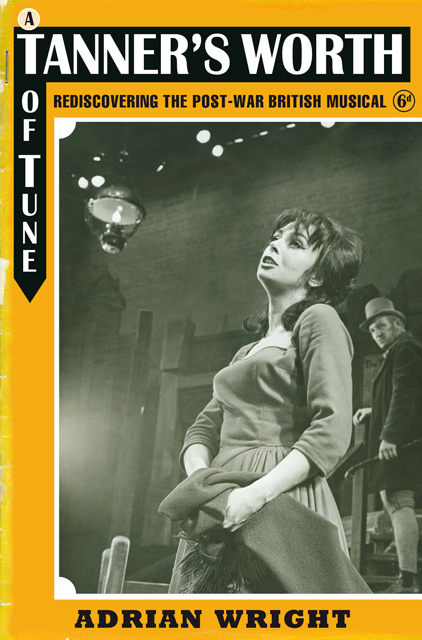Book contents
- Frontmatter
- Dedication
- Contents
- List of Illustrations
- Acknowledgements
- 1 Before and After: Identifying the British Musical
- 2 Delusions of Grandeur: Ivor Novello
- 3 Mastering Operetta: Noel Coward
- 4 Pastiche and Esoteric: Sandy Wilson
- 5 Resounding Tinkles: The plein air Musicals of Julian Slade and Dorothy Reynolds, Geoffrey Wright and Donald Swann
- 6 Away from Home: Adopted British Musicals
- 7 Community Singing: Realism and the British Verismo Musical
- 8 Specifically British: David Heneker, Monty Norman, Julian More and Wolf Mankowitz
- 9 To Whom it May Concern: The British Biomusical
- 10 Fin de Partie: John Osborne, Lionel Bart and After
- Appendix 1 Original Productions of British Musicals
- Appendix 2 Adaptations from Other Works, 1946–78
- Select Bibliography
- Index of Musical Works
- General Index
9 - To Whom it May Concern: The British Biomusical
Published online by Cambridge University Press: 01 March 2023
- Frontmatter
- Dedication
- Contents
- List of Illustrations
- Acknowledgements
- 1 Before and After: Identifying the British Musical
- 2 Delusions of Grandeur: Ivor Novello
- 3 Mastering Operetta: Noel Coward
- 4 Pastiche and Esoteric: Sandy Wilson
- 5 Resounding Tinkles: The plein air Musicals of Julian Slade and Dorothy Reynolds, Geoffrey Wright and Donald Swann
- 6 Away from Home: Adopted British Musicals
- 7 Community Singing: Realism and the British Verismo Musical
- 8 Specifically British: David Heneker, Monty Norman, Julian More and Wolf Mankowitz
- 9 To Whom it May Concern: The British Biomusical
- 10 Fin de Partie: John Osborne, Lionel Bart and After
- Appendix 1 Original Productions of British Musicals
- Appendix 2 Adaptations from Other Works, 1946–78
- Select Bibliography
- Index of Musical Works
- General Index
Summary
The very thought that the British musical should be responsible for representing the lives of real people may induce uneasiness. Paradoxically, one of the most tremendous successes of the genre is a biomusical about Jesus Christ, which may have made its subject’s life more real to its audiences. In essence, reality and the musical are not happy bedfellows, and the post-war British musical has come a fair share of croppers in offering up versions of lives that have been lived. The accent has always been on the historical, and the historical of rather long ago; the British musical has rarely tried to put a modern life at its centre, perhaps hoping that distance will lend enchantment. The contemporary has been almost ignored.
Ready-made music
The Broadway method of dealing with real lives brought some commercial and sometimes critical rewards with such works as Fiorello! (New York mayor Fiorello La Guardia), The Unsinkable Molly Brown (a Titanic survivor) and Annie Get your Gun (Annie Oakley). New York also had an occasional fancy for lives of famous composers set to their own music, as in George Forrest and Robert Wright’s Song of Norway (Edvard Grieg) and The Great Waltz (the Strauss family). This vein was explored in Britain by Eric Maschwitz, one of the British musical’s jobbing contributors. Despite having penned two noted lyrics in British song (‘A Nightingale Sang in Berkeley Square’ and ‘These Foolish Things’) and written prolifically for musical theatre, his work is seldom remembered. One of his earliest successes, Waltz Without End (Cambridge Theatre, 29 September 1942; 181), predated Song of Norway by two years. Perhaps, if audiences really wanted a musical based on the life of Frederic Chopin (1810–49), it was mere politeness to do it with Chopin’s music. The result, a decent London run, long touring days and endless amateur productions, suggested this was a good idea, although James Agate in the Sunday Times considered ‘To alter a composer’s rhythms, key and tempi is to murder that composer. To make voices sing words that are the acme of tawdry nonsense is to destroy an exquisite reputation.’
- Type
- Chapter
- Information
- A Tanner's Worth of TuneRediscovering the Post-War British Musical, pp. 195 - 221Publisher: Boydell & BrewerPrint publication year: 2010



